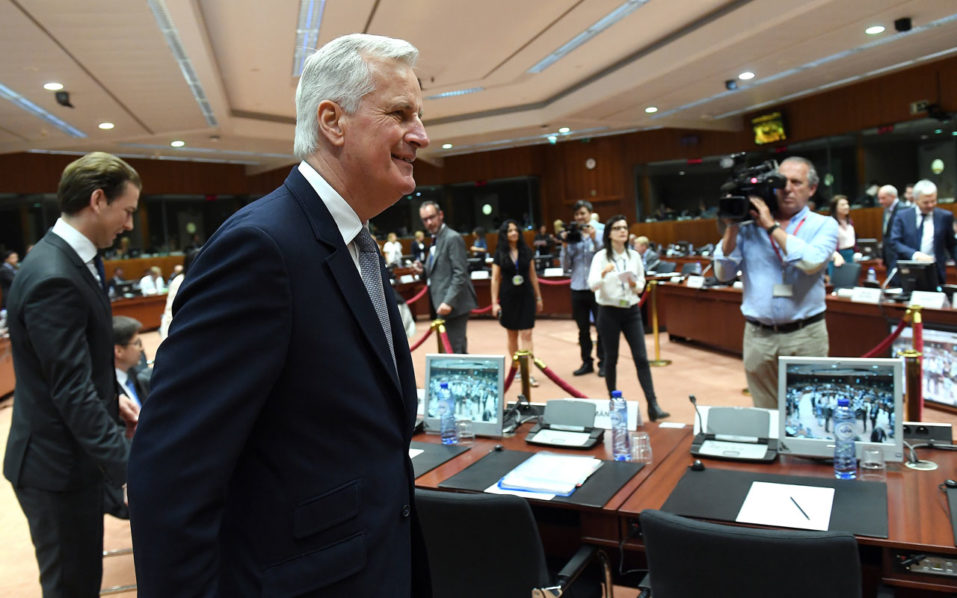
EU ministers on Monday unanimously gave Frenchman Michel Barnier the green light to start what they warned would be “very difficult” talks with Britain over its exit from the bloc.
Negotiations are not expected to begin until mid-June after the British general election, but the two sides are already at loggerheads over key issues including the cost of Britain’s departure.
Former European commissioner and French foreign minister Barnier will conduct negotiations on behalf of the remaining 27 EU member states for the coming two years.
He will lock horns with Britain’s Brexit minister David Davis who warned at the weekend that London could walk away from the talks if Brussels pushes a reported 100-billion-euro ($112-billion) divorce bill.
“EU 27 just adopted at unanimity decision authorising Article 50 negotiations. Strong and clear mandate for Michel Barnier,” Barnier’s deputy Sabine Weyand tweeted.
German foreign ministry state secretary Michael Roth said as he arrived for the meeting in Brussels that Brexit was a “lose-lose situation” for everyone.
“We all have to prepare for very difficult negotiations,” Roth told reporters. “We have two years time, the clock is ticking and we have to start working focused.”
Barnier’s Brexit mandate on Monday comes from “negotiating directives” approved by the EU 27 ministers.
They were based on guidelines that EU leaders adopted in just four minutes — one for each decade of Britain’s membership — in a rare show of unity for the often divided bloc.
The EU insists on making “sufficient progress” on three key divorce issues before talks can start on a future UK-EU trade deal.
These are the rights of EU citizens in Britain and British citizens on the continent; London’s exit bill; and arrangements for the border between Ireland and the British province of Northern Ireland.
Britain however wants the divorce settlement and the future relationship to be discussed in parallel.
Barnier told EU colleagues on May 3 he does not expect negotiations to begin until mid-June when he hopes Britain’s post-election political climate will be more favourable to reaching an agreement.
– Threat to walk away –
British Prime Minister Theresa May, who triggered the divorce process on March 29, said “the next five years will be among the most challenging in our lifetime”.
May took over from David Cameron who resigned after a slim majority of British voters shocked the world last June when they chose to leave the bloc over complaints on immigration and other issues of sovereignty.
But the most contentious issue threatens to be the exit bill.
Brexit minister Davis reiterated an earlier threat to quit the talks if the EU does not moderate its demands.
“We don’t need to just look like we can walk away, we need to be able to walk away. Under the circumstances, if that was necessary, we would be in a position to do it,” he said.
Luxembourg Foreign Minister Jean Asselborn warned Britain that while it will leave the EU in 2019, it could be paying up for years more on financial obligations it agreed to while a member of the EU.
“That goes until 2020 and of course beyond,” Asselborn said, referring to the seven-year budget Britain agreed to with the other EU states in 2014.
Barnier has already outlined a provisional timetable leading up to the formal exit in two years.
He hopes for an agreement on the first phase between October and December 2017, then a launch of the second phase between December 2017 and spring 2018, then finalisation of a Brexit deal towards October 2018.
The aim would be to have the ratification process for the deal completed by March 2019, three months before the next European Parliament elections.



